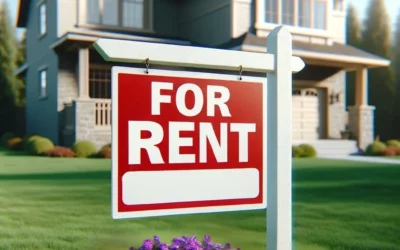Requests by co-owners to alter or modify their units—or adjacent common elements—are among the most frequent and challenging issues faced by condominium associations. For board members and property managers, responding to these requests requires careful consideration,...
Rules and Regulations
Webinar – The Michigan Homeowners’ Energy Policy Act
The Michigan Homeowners' Energy Policy Act: What Board Members and Managers Need to Know If you are a board member or manager of a Michigan community association, you need to know how to comply with the Homeowners' Energy Policy Act, which becomes effective April 2,...
New Homeowners’ Energy Policy Act Impacts All Community Associations in Michigan
The State of Michigan adopted Public Act 68 of 2024, known as the "Homeowners’ Energy Policy Act" (the “Act”). Its effective date is April 2, 2025. This Act impairs the ability of condominium and subdivision associations (referred to in this article as “community...
Social Media Best Practices for Your Community
The primary allure of social media in community associations lies in its ability to foster enhanced communication. Platforms like Nextdoor and Facebook groups offer a space for neighbors to share information — from community events to security alerts — and foster a...
Untenable Tenants! How to Address Problem Renters in Your Condominium
Tenants in condominium communities are often viewed as challenging, since they may not be familiar with condominium living. Because of this lack of experience, tenants may interfere with management, refuse to maintain the decorum required by the bylaws, or damage...
Curbing Parking Issues in Common Interest Communities
Insufficient parking in shared interest communities often leads to the inability to meet the parking requirements of all residents. While the adequacy of parking facilities may not have been a significant concern for community associations established in the 1970s or...
To Keep or Not to Keep: Navigating the Legal and Social Challenges of Backyard Chickens in Michigan Condominiums
Keeping backyard chickens has become increasingly popular over the years as more and more people seek to live a sustainable and self-sufficient lifestyle. But is it legal for Michigan community association residents to keep chickens in the backyard of their...
Why Associations Must Be Aware of Changes to the Marketable Record Title Act
Updated as of March 28, 2024 As discussed in more detail below, the State legislature amended the Marketable Record Title Act (MRTA) in 2019. While many community associations may not be familiar with the MRTA since its provisions historically have not affected...
Be Aware of Potential Disparate Impact Discrimination Claims in Your Association
In community association administration, disparate impact claims can arise when a seemingly neutral policy or practice has a disproportionate negative impact on a group protected by fair housing laws. For example, communities occasionally ask us whether they can...
Preventing Mold and Water Damage in Your Condominium Association: Proactive Steps for Managers and Boards
From frozen pipes, broken appliance supply lines, to roof leaks and leaking drain pans, in townhome and attached condominiums, these and other sources of water intrusion can quickly wreak havoc for owners and the association if not handled properly and quickly....
Court Requires More Disclosure for Michigan Condos and HOAs
Bafna v Echo Valley Condominium Association A Michigan Court of Appeals decision suggests courts will view Michigan owner requests to inspect condominium, homeowner, and community association documents quite broadly and will generally frown on refusing to allow...
Can you Foreclose on Just Unpaid Fines? The Michigan Court of Appeals Renders a Decision
In a unanimous but problematic decision issued on February 25, 2021 in Channel View East Condominium Association, Inc. v Ferguson (Docket No. 351888), a panel of the Michigan Court of Appeals held that a condominium association did not have authority to foreclose its...












